
-
Find the right food for your petTake this quiz to see which food may be the best for your furry friend.Find the right food for your petTake this quiz to see which food may be the best for your furry friend.Health CategoryFeatured products
 Adult Perfect Digestion Chicken, Barley & Whole Oats Recipe Dog Food
Adult Perfect Digestion Chicken, Barley & Whole Oats Recipe Dog FoodScience Diet's breakthrough nutrition supports ultimate digestive well-being & healthy microbiome
Shop Now Hill's Science Diet Adult Healthy Mobility Large Breed Chicken Meal, Barley & Brown Rice Recipe Dog Food
Hill's Science Diet Adult Healthy Mobility Large Breed Chicken Meal, Barley & Brown Rice Recipe Dog FoodAdvanced nutrition shown to support joint health and improve mobility
Shop Now Adult Perfect Weight & Joint Support Chicken & Brown Rice Recipe Dog Food
Adult Perfect Weight & Joint Support Chicken & Brown Rice Recipe Dog FoodThis weight management and mobility support dog food was created with Hill’s unique understanding of the biology of overweight dogs.
Shop NowFeatured products Adult Healthy Cuisine Roasted Chicken & Rice Medley Cat Food
Adult Healthy Cuisine Roasted Chicken & Rice Medley Cat FoodDelicious roasted chicken and rice in a mouthwatering sauce
Shop Now Adult Perfect Digestion Chicken, Barley & Whole Oats Recipe Cat Food
Adult Perfect Digestion Chicken, Barley & Whole Oats Recipe Cat FoodHill's Science Diet's breakthrough nutrition supports ultimate digestive well-being & healthy microbiome
Shop Now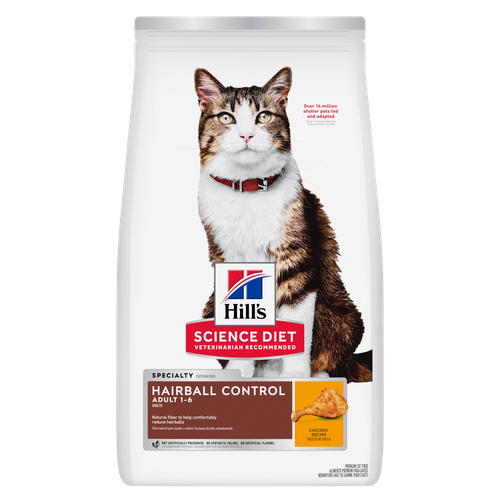 Adult Hairball Control Chicken Recipe Cat Food
Adult Hairball Control Chicken Recipe Cat FoodNatural fibre comfortably reduces hairballs
Shop Now -
DogCat
- Cat Tips & Articles
-
Health Category
- Weight
- Skin & Food Sensitivities
- Urinary
- Digestive
- Kidney
- Dental
- Serious Illness
-
Life Stage
- Kitten Nutrition
- Adult Nutrition
Featured articles Fun Ideas for Kids and Pets This Summer
Fun Ideas for Kids and Pets This SummerOutdoor summer activities with your dog or cat can be fun for kids, too. Learn how they also teach kids responsibility & creates a bond with their pet.
Read More Water
WaterWater is the most important nutrient of all and essential for life. Animals can lose almost all their fat and half their protein and still survive, but if they lose 15% of their water, it will mean death.
Read More Tips on How to Store Your Dog or Cat Food Properly
Tips on How to Store Your Dog or Cat Food ProperlyWhere you store your cat and dog food can make a big difference in the quality and freshness once it is opened. Here are some common questions and recommendations for optimal storage for all of Hill’s dry and canned cat and dog food.
Read More -


Your kitty's paws are as important to her as your hands and feet are to you. As a cat parent, it's important to help your cat maintain healthy paws. This quick guide to cat paw care will help you keep all of the cat paw pads in your fur family healthy and clean.
Why Care for Cat Paw Pads?
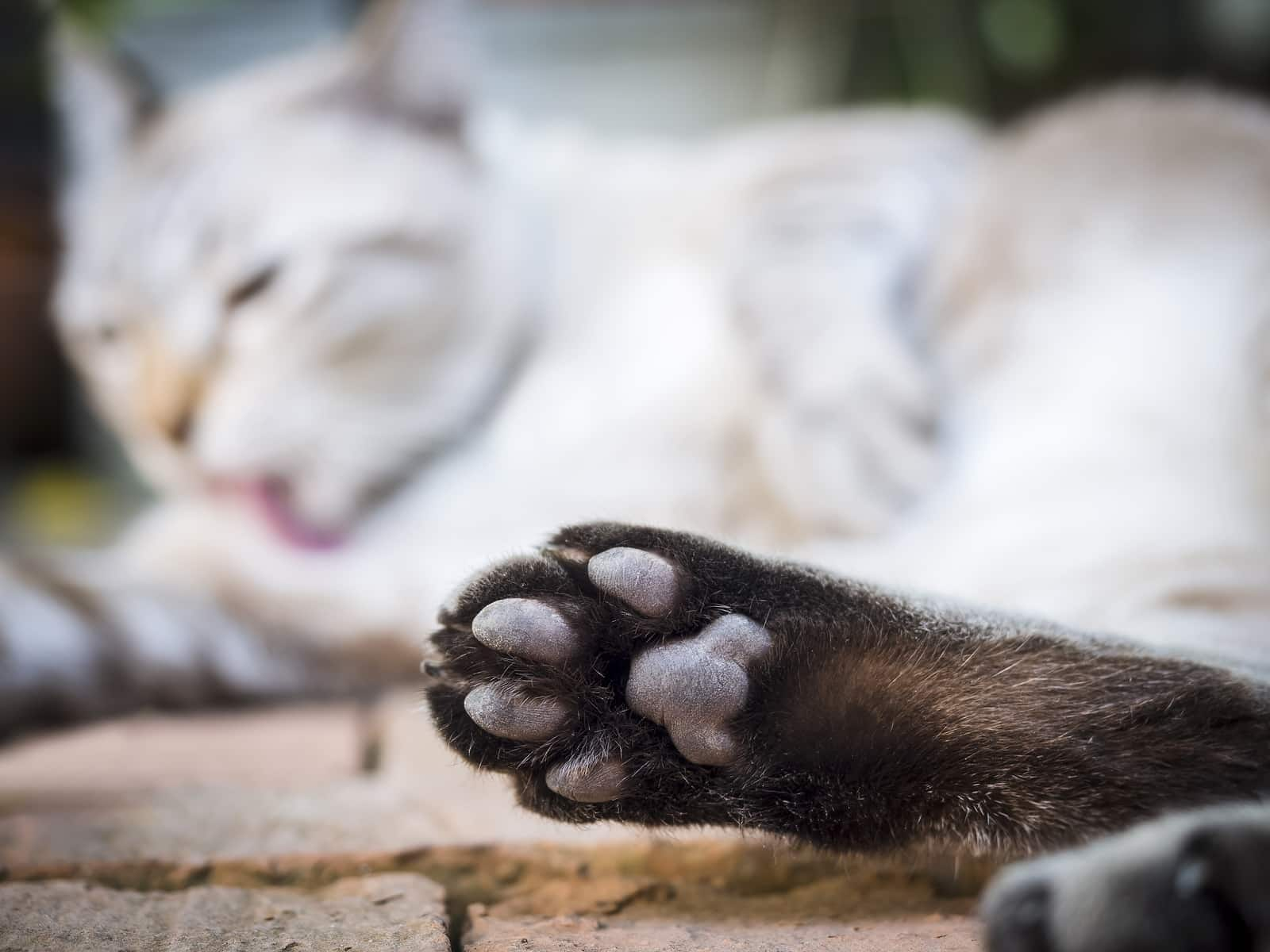 Think for a moment about how cats use their paws. They walk across dirty surfaces (including the litter box) and may walk through harsh cleaning chemicals. If they're allowed outside on a leash, they may walk across rough and rocky ground, step on thorns and other sharp items, and tread across hot or cold surfaces, depending on the weather. Cats allowed outdoors in the winter are also susceptible to walking through harsh salts and other deicing agents that can be harmful to paws.
Think for a moment about how cats use their paws. They walk across dirty surfaces (including the litter box) and may walk through harsh cleaning chemicals. If they're allowed outside on a leash, they may walk across rough and rocky ground, step on thorns and other sharp items, and tread across hot or cold surfaces, depending on the weather. Cats allowed outdoors in the winter are also susceptible to walking through harsh salts and other deicing agents that can be harmful to paws.
At some point in the day, your kitty will take it upon herself to clean her own paws by licking them, in the process ingesting any harmful substances her little feet may have picked up. Regular cat paw care that includes inspections and cleaning will not only help keep your kitty's paws clean and safe for licking, but also allow you to manage dry and cracked paws, cuts and other injuries before they can become infected.


Tasty Tips
Cat Paw Care Guide
Getting Started
While inspecting your cat's paws on a regular basis will be good for ensuring you keep them healthy, you can also look for signs that something may be going on with her paws. If you notice she is limping or not putting pressure on a certain paw, she might have something stuck in it or has injured her paw in some manner. Keep in mind that cats are good at hiding their pain, so you may have to pay close attention. Additionally, when a cat is injured she might be less receptive to you inspecting them, so do your best to keep her comfortable and calm while you inspect them.
If your cat isn't used to having her paws handled, you may need to get her accustomed to the idea. Cuteness recommends getting into the habit of massaging your kitty's paws when you hold or pet her. This will not only help her become accustomed to having her paws touched and handled, but will also help you detect any debris that might be caught between her toes and paw pads.
Paw Inspection
Once your cat tolerates you handling her paws, make it a point to examine them daily, especially after she returns from an outdoor jaunt. Look for scratches, sores, and foreign objects, says the Animal Care Clinic in Lexington, Kentucky. If you find something embedded in kitty's paw, if possible, use a pair of tweezers to gently remove it, or call your veterinarian if it's embedded too deeply.
Paw Cleaning
Either before or after your inspection, use a soft cloth to wipe all those tiny cat paw pads, as well as around the pads and between the toes. This will clean her toes of dirt, litter dust and any chemicals or foreign objects.
Nail Trimming
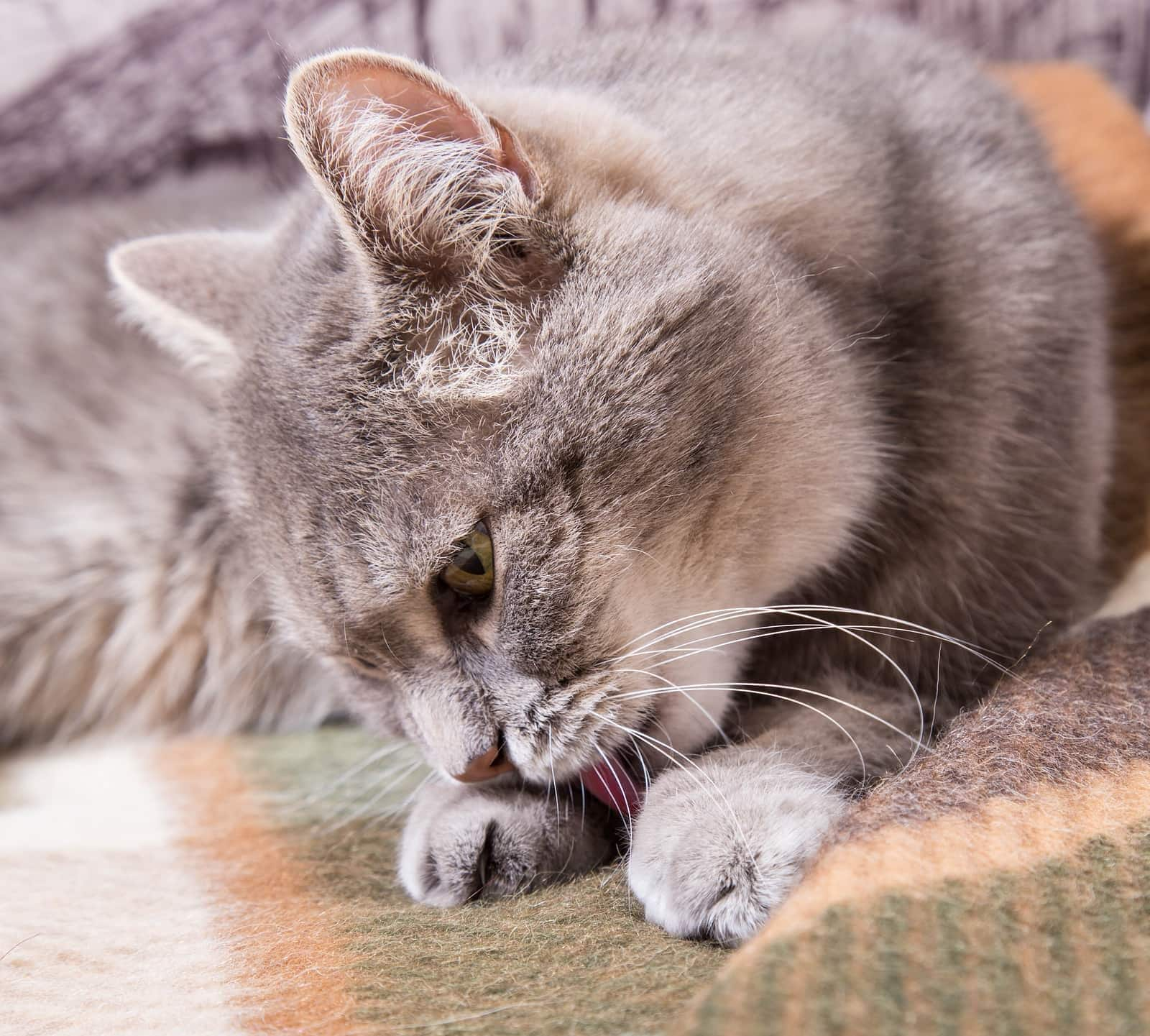 Use a pair of nail scissors made especially for cats to trim cat claws. Be sure to trim just the tips, taking care to avoid the quick (the part of the nail containing sensitive nerves and veins).
Use a pair of nail scissors made especially for cats to trim cat claws. Be sure to trim just the tips, taking care to avoid the quick (the part of the nail containing sensitive nerves and veins).
If you do accidentally cut into the quick, keep some styptic powder to stop the bleeding. If you don't have any styptic powder on hand (You can usually find it in your local pet supply store.), flour or corn starch works in a pinch.
Treating Dry Cat Paw Pads
If your kitty's paw pads become dry, irritated or cracked, contact your vet; they recommend that you try moisturizing them with olive, coconut or another food-quality oil that will be safe for her to lick. You may want to confine her to a bathroom while the oil absorbs to keep her from tracking it through the house. If she needs something more heavy-duty, ask your vet to recommend a good paw moisturizer for cats. Avoid petroleum jelly or lotions made for humans, which may be harmful if ingested.
Additional Considerations
Of course, one of the best things you can do for your kitty's paws is to keep her indoors, where she'll be less likely to become injured or encounter extremely hot or cold surfaces or dangerous chemicals. Cuteness points out that dry winter air can dry out your kitty's paws, so consider using a humidifier during cold months. A scratching post can also help keep her nails in good condition — not to mention keeping your carpet and furniture safe from her urge to claw.
With everything involved in caring for cats, it's easy to overlook proper cat paw care. Making a daily habit of checking and cleaning her paws will make it easy to keep them in good shape.


Jean Marie Bauhaus is a pet parent, pet blogger, and novelist from Tulsa, Oklahoma, where she usually writes under the supervision of a lapful of fur babies.
Related products

Natural fibre comfortably reduces hairballs

Hill's Science Diet's breakthrough nutrition supports ultimate digestive well-being & healthy microbiome

Healthy digestion for easy litter box clean-up

Delicious roasted chicken and rice in a mouthwatering sauce
Related articles
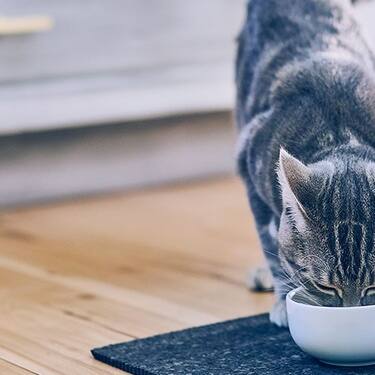
Understand the symptoms of a chronic upset stomach in your cat, and learn how to help sooth their discomfort.
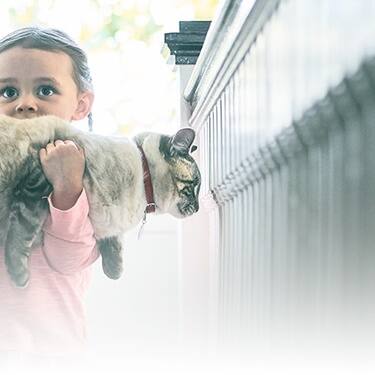
Provide the best possible treatment for cats with sensitive skin by spotting the signs, knowing the causes, and understanding the remedies. Learn more now.
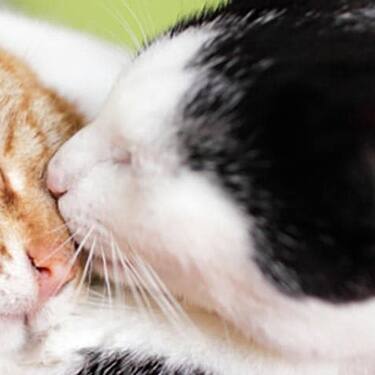
Being overweight puts a cat at risk for developing many serious health issues. Weight gain indicates an increase in body fat and usually results when your cat eats too much and exercises too little.
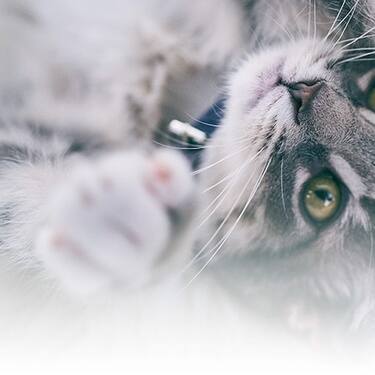
Obesity affects more than 30 percent of cats in America. Learn how you can properly feed and exercise your cat to improve its weight management.

Put your cat on a diet without them knowing
Our low calorie formula helps you control your cat's weight. It's packed with high-quality protein for building lean muscles, and made with purposeful ingredients for a flavorful, nutritious meal. Clinically proven antioxidants, Vitamin C+E, help promote a healthy immune system.
Put your cat on a diet without them knowing
Our low calorie formula helps you control your cat's weight. It's packed with high-quality protein for building lean muscles, and made with purposeful ingredients for a flavorful, nutritious meal. Clinically proven antioxidants, Vitamin C+E, help promote a healthy immune system.

